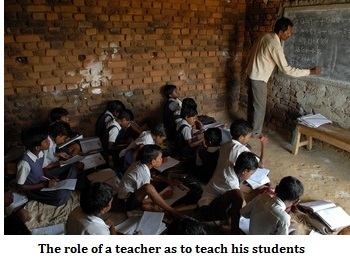

Status and role are two important concepts in sociology that are closely related. They are fundamental to the way that individuals and groups interact with each other in society. These concepts are intertwined and shape individuals' identities, behaviours, and relationships with others. Status and role are key components of social stratification, which categorises individuals on factors such as wealth, power, and prestige.
Status can be defined as the social position or rank that an individual holds in a social system with defined rights and duties assigned to these positions. An individual's status can also be temporary or permanent, depending on the social context. Status is an important aspect of social life because it determines an individual's access to resources and opportunities, and it also shapes the way that others perceive and interact with them. For example, a doctor, lawyer, or engineer holds a high status in society as they may have more power, influence, and prestige than others, and may be treated with greater respect and deference.

Representation of the various status of the individuals
A role can be defined as the behavioural or dynamic aspect associated with a particular status.  It is the way that an individual is expected to behave in a particular social position. Roles are learned through socialization, and they vary according to the social context. For example, the role of a parent is different from the role of a teacher. Roles provide a framework for social interaction and help to maintain social order. Roles also help to define relationships between individuals and groups. For example, the role of a boss is to supervise and manage employees.
It is the way that an individual is expected to behave in a particular social position. Roles are learned through socialization, and they vary according to the social context. For example, the role of a parent is different from the role of a teacher. Roles provide a framework for social interaction and help to maintain social order. Roles also help to define relationships between individuals and groups. For example, the role of a boss is to supervise and manage employees.
There have been many key thinkers in sociology who have contributed to the development and understanding of the concepts of status and role. Some of the most influential theorists are
Max Weber − Weber is known for his work on social stratification and he argued that status, along with class and party, was one of the three main components of social stratification. He also developed the concept of "status groups," which are groups of people who share similar status and have similar “styles of life” on the principle of consumption of goods.
George Herbert Mead − Mead is known for his work on the role of symbols and meaning in social interactions, argued that individuals develop their sense of self through social interactions and that role-taking, or the ability to see oneself from the perspective of others, is an important part of this process.
Talcott Parsons − Parsons, known for his work on social systems and the functions of different social institutions, argued that social systems are organized around the fulfilment of different roles and that the performance of these roles is necessary for the maintenance of social order.
Robert K. Merton − Merton is known for his work on social structure and anomie. He developed the concept of "role strain," which refers to the tension that arises when the expectations associated with a particular role are difficult to fulfil.
The main types of status are
Ascribed Statusy − Ascribed status is a social position that is assigned to an individual based on factors such as race, gender, and family background at birth. For example, being born into a certain race or ethnicity.
Achieved Status − Achieved status is a social position that is attained voluntarily through an individual's efforts, abilities, or accomplishments. For example, obtaining a college degree by studying hard.
Status set − An individual occupies multiple statuses in a given context or society which can be both ascribed and achieved statuses. For example, a person can hold the status of a doctor, a son, and a father.
Status sequence − A status sequence refers to the attainment of different statuses in sequential order throughout an individual's life. For example, a son becomes a father, and then a grandfather.
The main types of roles are −
Cultural Role − These are roles that are influenced by cultural values, beliefs, and norms, such as the traditional gender roles of men as breadwinners and women as homemakers.
Performance Role − These are roles that individuals perform to meet the expectations of others or to fulfil social norms, such as the role of a good student or a responsible employee.
Role Conflict − Role conflict occurs when an individual is expected to fulfil the expectations and requirements of two or more roles. For example, a working parent may experience role conflict when they have to balance the demands of their job with their responsibilities as a caregiver.
Role Set − A role set refers to the different roles and relationships that are associated with a particular status or position. For example, the role set of a teacher may include their relationship with students, parents, and colleagues.
Status and role are closely related concepts. An individual's status determines the roles that they are expected to play in a particular social context. For example, the status of a parent comes with the role of nurturing and raising children.
Roles also affect an individual's status. When an individual successfully performs their role, they may be rewarded with a higher status. For example, a successful businessperson may be promoted to a higher position in the company, which comes with a higher status.
Status and role are important concepts in sociology that help us to understand the way that individuals and groups interact with each other in society. These concepts are closely related, and they help in understanding the concepts of status and role is essential for analyzing the dynamics of social relationships and social inequality, as well as for understanding how individuals construct their identities and navigate their roles in society.
Q1. How are status and prestige interconnected?
Ans. Status and prestige are interrelated terms, as each status comes with certain values and rights that contribute to its overall prestige. For example, a doctor holds a high status and is widely respected and admired in society due to the prestige associated with the medical profession
Q2. Who developed the term “role conflict”?
Ans. Robert K. Merton developed the concept of "role conflict," which refers to the situation when the expectations associated with two or more roles are incompatible.
Q3. What is role stereotyping?
Ans. Role stereotyping is a process of reinforcing some specific role for some members of society. For example, a mother is socialised into the role to be the caregiver